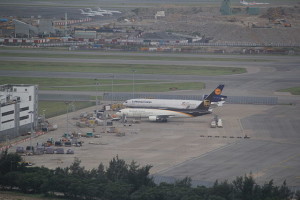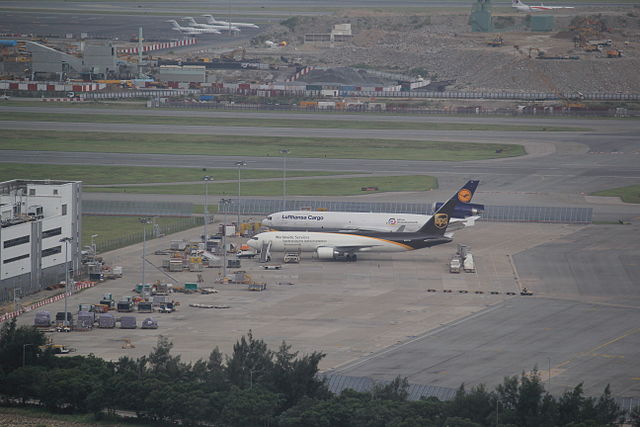 Hong Kong Air Cargo Terminals Limited (Hactl), Hong Kong’s major independent cargo handler, ended 2014 with the strongest quarter of the year in overall tonnage and in export volumes.
Hong Kong Air Cargo Terminals Limited (Hactl), Hong Kong’s major independent cargo handler, ended 2014 with the strongest quarter of the year in overall tonnage and in export volumes.
In an official statement, Hactl said it handled 491,476 tonnes in the last quarter of last year, up 4.9% on the same period of 2013.
The last quarter was also the best of the year in exports, which totaled 287,456 tonnes, higher by 4.2% on 2013. Imports reached 131,202 tonnes, up 7.7%, while mail and express amounted to 41,558 tonnes, a decrease of 2.2%.
Transshipments totaled 31,261 tonnes in the fourth quarter (up 11.1%, but only the third highest quarter of 2014).
For the year as a whole, Hactl’s total tonnage handled was up 8.7% at 1,814,726 tonnes. Exports increased by 6.7% to 1,035,899 tonnes, imports were up 10.3% to 498,338 tonnes, transshipments were up 28.6% at 130,834 tonnes, and mail/express traffic grew 3.1% to 149,655 tonnes.
“This is a very pleasing result, with good increases in all areas of our business,” said Hactl chief executive Mark Whitehead. “Transshipments once again showed exceptional growth, fuelled both by increased road feeder activity by our subsidiary Hacis, and the continuing underlying development of Hong Kong as Asia’s preferred regional hub.”
He also said: “The ongoing strong growth of our business, based on our 100 airline customers, clearly demonstrates the need for Hong Kong’s third runway. For Hong Kong to continue such impressive development and maintain its position as the world’s number one cargo hub, we must have the additional capacity necessary for airlines to realize their full potential.”
Whitehead told the South China Morning Post that he was reasonably optimistic about global air cargo trends in 2015 and even into 2016, particularly with oil prices coming down and airlines adjusting their hedging position.
Earlier, the Hong Kong International Airport also said it had a successful 2014, setting a new annual record in cargo throughput, which rose 6% year-on-year to 4.38 million tonnes.
Photo: Katie Chan





